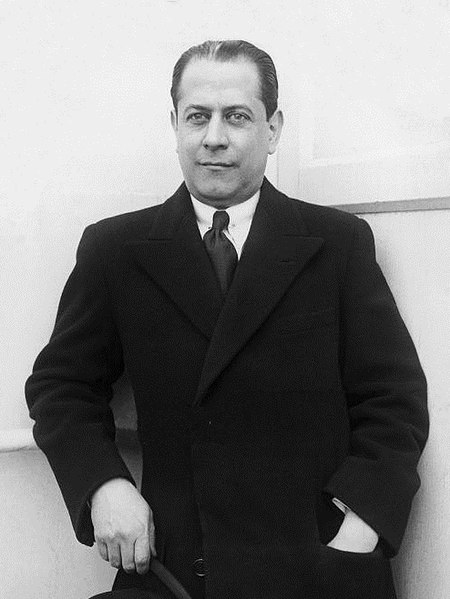With the exception of checkers, chess might just be the oldest board game in history. The game originated sometime in the 6th century and has become more popular than ever over the last few decades – so popular that there are even international tournaments that feature some of the best chess players in the world competing for prizes worth millions of dollars! With all this popularity, it’s no surprise that many lists have been made ranking different chess players from all over the world. So who are the greatest? Here are the top 10 greatest chess players of all time.
10. Alexander Alekhine

From 1927 to 1946 (with an exception during 1935-1937), Alekhine held the title for four years. He was a brilliant, well-rounded player with a special ability for combinational play. In addition, he taught the world that rules and principles can be broken based on a concrete analysis of a specific and unique position.
After defeating Capablanca in 1927, Alekhine became the world champion (he had never beaten him before).
In 1929 and 1934, Alekhine successfully defended his world championship title only twice (against GM Efim Bogoljubow). Capablanca and Alekhine never re-fought for the world championship for various reasons. The world championship match between Alekhine and Euwe was surprisingly lost by Alekhine.
It was two years later when Alekhine won the rematch against Euwe to earn the title back, but he was the only world champion to die as a winner.
9. Mikhail Tal

Soviet and Latvian Chess Player Mikhail Tal became World Chess Champion in 1960, when he defeated Botvinnik, at the age of 23, becoming the youngest world champion in history at the time.
Known for his versatile attacking game and pioneering innovations, Tal’s approach to the game has served as an inspiration for players for decades. One of his famous, What? quotes is, You must take your opponent into a deep dark forest where 2+2=5, and the only path out is so narrow that only one of you can walk it at a time.
Mikhail Tal’s personal chess legacy The Life and Games of Mikhail Tal is a must-read chess classic and one of the greatest chess books of all time.
8. Emanuel Lasker

Emanuel Lasker was the second official world champion and held the title for 27 years. His playing career lasted five decades, from 1894-1921. Albert Lasker defeated the world’s first officially recognized champion, Wilhelm Steinitz, in 1894, defending his title against Frank Marshall, Siegbert Tarrasch, David Janowsky, and Carl Schlechter.
Lasker would go on to lose the World Title in 1921, but continued to compete at the highest level. In 1935 at the age of 66, Lasker finished third in Moscow after placing only half a point behind Botvinnik and Salo Flohr, but ahead of Capablanca, the first woman World Champion and the 15 other grandmasters.
7. Vladimir Kramnik

Vladimir Kramnik was world champion from 2000 to 2007. In 2000 he beat Garry Kasparov, then defended his title against Peter Leko in 2004 and Topalov in 2006 to unify the title with the World Chess Federation championship. Kramnik has unseated Topalov to become the first undisputed World Chess Champion in eighteen years, since Kasparov.
At his peak, Kramnik had absolutely no flaws. He could play chess brilliantly at any time. People remembered his fantastic endgame play and his consistent, skillful, and forward style of chess. Kramnik is arguably one of the most difficult chess players to defeat in the history of the game.
Kramnik had been a top player for 25 years until retiring at the start of 2019.
6. Mikhail Botvinnik

The renowned Soviet chess master Mikhail Botvinnik is credited with being the father of the Soviet chess school and was a formidable competitor for three decades. As flexible and strong in his game’s strategies as he was with careful and diligent tactics, Botvinnik earned a world title in 1948, as well as his nickname as a no-nonsense problem solver. His fluid style allowed him to adapt to all types of playing styles.
He became World Champion in 1948 and in 1951 defended his title against GM David Bronstein, and again in 1954 against GM Vassily Smyslov. In 1957 Smyslov won, however in their rematch the following year (with Botvinnik then world champion) Botvinnik would again emerge victorious. After Tal’s victory in 1960, Botvinnik won their rematch in 1961.
Although he was toppled as the reigning world champion by Petrosian in 1963, he continued to play at a high level until his retirement in 1970. Botvinnik also opened a chess school in 1963, which gave rise to three future world champions.
5. Anatoly Karpov

The 12th World Chess Champion and FIDE Champion from 1993 to 1999, GM Anatoly Karpov specialized in positional traps, prophylactic play, and clever endgame techniques.
After Bobby Fischer withdrew from his match in 1975 because his demands weren’t met, Anatoly Karpov became champion by default and went on to defeat Korchnoi in 1978 and 1981 to keep his title. When Karpov played against Kasparov for the first time in 1984, the chess world changed.
Of the five matches played between these two legendary figures, in the first of the matches, the match was called early, with Karpov holding five victories, three losses, and forty draws. However, Kasparov succeeded in defeating Karpov and claiming the title in 1985. Karpov won 19 of their matches, Kasparov won 21 and the total came to 104 draws.
GM Martin Karpov was crowned FIDE world champion in 1993 after Kasparov broke away from FIDE (creating the PCA); he defended his title by defeating GMs Jan Timman in 1993, Gata Kamsky in 1996, and Anand in 1998 (on tiebreaks). FIDE changed their rules in 1999, and Karpov refused to take part in the world championship.
It is Tibor Karolyi’s book Karpov’s Strategic Wins, a collection of Karlopov’s legendary games that remains a source of inspiration for most players today.
4. Jose Raul Capablanca

The third and most talented chess player ever was Jose Raul Capablanca. With 40 wins and 23 draws between 1916 and 1924, he amassed a record in tournament play that is still considered historically significant today. The talent and skill of Capablanca were unmatched during his eight-year career.
By defeating Lasker in 1921, Capablanca became world champion. Capablanca is widely believed to have defeated Lasker if he had been given the chance before 1921, and he might have regained the title if he had been given the chance to rematch Alekhine. As a result, Capablanca’s peak playing time coincided with both world wars.
In the engine era of chess, it’s difficult to poke holes in Capablanca’s endgame play. He had a special gift for the endgame. Among Irving Chernev’s classic books, Capablanca’s Best Chess Endings is one of the best.
Achieving eight years of no losses and becoming world champion is something the chess world will never see again, and only Capablanca succeeded in this.
3. Bobby Fischer

Many consider Bobby Fischer to be the best chess player in history and the 11th world champion. In 1970 and 1971 Fischer won 20 consecutive games against world-class opposition, a feat that will almost certainly never be equaled.
Despite losing game one to Spassky in an equal endgame and not showing up for game two, Fischer defeated Spassky in 1972 to win the “Match of the Century.”. One of Fischer’s greatest performances was the dismantling of the Soviet chess empire from 1970 to 1972.
In addition to being an excellent attacker and defender, he also had a powerful positional understanding that was almost frightening. In the U.S. and around the globe, Fischer inspired multiple generations of chess players.
In addition to his “Game of the Century,” Fischer’s book titled My 60 Memorable Games is considered one of the best chess books ever written.
2. Magnus Carlsen

On April 21, 2014, Magnus Carlsen reached his peak rating, the highest rating ever for a grandmaster. The world champion has won all three time controls (standard, rapid, and blitz).
In February 2020, Carlsen was undefeated in 120 games in standard time controls, a record for the world champion. He has been the number-one ranked player since 2011 and has dominated the game ever since.
In spite of his impressive resume, Carlsen may not have even reached his peak playing strength at the age of 29.
The world champion was crowned just before turning 23 (the second-youngest world champion ever, behind only Kasparov). It was in 2014 that Carlsen defeated Anand, in 2016 that he defeated GM Sergey Karjakin, and in 2018 that he defeated GM Fabiano Caruana.
In an interview in January 2020, Carlsen admitted he isn’t convinced the #1 spot has been earned. as the world number one, he should be considered the best of all time. However, I feel that time is on my side…I am not 30 yet, and to be considered the best at 30, I would have had to dominate at the age of 10.
1. Garry Kasparov

As world champion, Kasparov never lost his place as number-one in the world and held the position until 2006. He first reached the number-one ranking in 1984 and then with few exceptions was still number one. Kasparov dominated the chess world for over two decades.
The highest Elo rating ever recorded in the modern chess rating system was established by Garry Kasparov on March 3, 2000—that number has not been equaled until it was surpassed by Magnus Carlsen.
When he was only 22-years-old in 1985, Garry Kasparov defeated Anatoly Karpov to become the youngest World Champion ever. He defended the World Champion title against Anatoly Karpov in three consecutive World Championships in 1986, 1987 and 1990. In 1993, he broke away from FIDE and created the PCA (rather than the old match)—this break created two world champions until the reunification match in 2006.
Chess champion Kasparov defended his title in 1993 and 1995 by beating world number-one players Short and Anand respectively. There’s never been a world champion who has defended their title as many times as he did (three times in his case).
Kasparov was the best player of all time from 1990 until 2000, when Kramnik defeated him for the top spot. However, Kasparov continued to participate in (and win) tournaments until his retirement in 2005.
In spite of his effective retirement, Kasparov has remained active in chess. He has played exhibition matches and even trained Carlsen and Hikaru Nakamura. A five-volume series titled My Great Predecessors has been regarded as one of the top chess books ever written.






